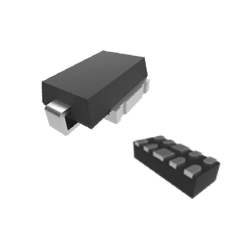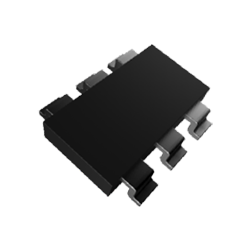/ The Unsung Hero of Solar Photovoltaic (PV) System Safety
Electrical switch panels are crucial to PV/solar systems. Strategically located between the solar panels and inverters or batteries, the electric panel switch allows for quick control of electricity flow. When it’s time to manually interrupt the power, it usually needs to happen fast.
Here’s how these small switches play a big role in overall system safety and performance:
- Safety - having an emergency shutoff switch is a must for the protection of personnel, homeowners, and the general public. Plus, firefighters need to know the system is completely de-energized before they can begin putting out a fire.
- Convenience & control - a fast, reliable way to isolate the DC power source is essential for private or commercial PV system use.
- System protection - issues will likely happen over the lifetime of the PV system. The electric panel switch enables a quick shutoff, which can minimize damage to the system and its components during a malfunction.
- Compliance - many municipalities now mandate disconnect switches for PV systems, so having one ensures the system satisfies local codes and regulations.
/ Application Considerations
Because this device plays such a crucial role in keeping users safe, extra thought should be given to designing PV electric panel switches. Application considerations include:
- Voltage rating - designing the switch for the appropriate voltage levels required by the PV system (typically 48 VDC or less for consumers, up to 1000 VDC or more for commercial/utilities) is essential to prevent damage to equipment while maintaining safety.
- Current capacity - engineers must design PV switches with a continuous current rating that exceeds the array’s maximum DC level and also account for expansion.
Environmental conditions - harsh working conditions are part of the environment for solar panel switches, which require rugged design to withstand extreme temperatures, humidity, and exposure to direct sunlight. - Safety features - safety of personnel and equipment comes first, so features like overload protection, short-circuit protection, and arc flash mitigation are necessary.
- Ease of operation - the switch will often be used in emergencies or maintenance, so easy operation and accessibility to shutoffs is essential.
- Compliance with industry standards - compliance with relevant safety standards and regulations such as the National Electrical Code (NEC) in the US may vary by location, and should always be taken into account when designing solar equipment.
- Integration with system components - to maximize reliability and performance, the ideal switch design will seamlessly integrate with other components within the PV/solar system, including inverters, batteries, and monitoring systems.
- Reliability and durability - designing the panel switch with high-quality components can ensure it will perform reliably when needed most while enhancing the device’s lifespan.
/ Block Diagram
/Recommended Products
No matter the application or industry, MCC has the service and components you need to get to market faster and reduce overall costs.



